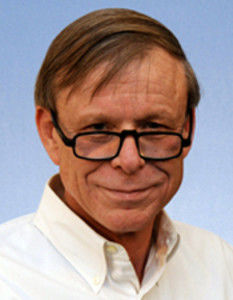
Center Valley, PA 18034
Biography
Richard Martin brought a wealth of knowledge to Penn State Lehigh Valley from his years in industry and secondary education. His students say he is generous with that knowledge and, most importantly, is kind, supportive, and truly interested in his students’ well-being both in and out of the classroom.
A native of Delaware who has lived in several states but now calls Bethlehem Township home, Martin said his previous careers gave him a solid foundation for teaching at Penn State Lehigh Valley. “There is no doubt that my 25 years of working in industry prepared me for teaching programming and mathematics,” he said. “Most all of my teaching in high school, in graduate school as a TA, and in adult education in industry has been in small classes—mostly face to face. I especially like teaching at the Lehigh Valley campus because the classes are relatively small, and I can get to know the students.”
A PSU-LV faculty member for the past 14 years, Martin has served on nearly every Faculty Senate Committee, and was instrumental in forming the IST Advisory Council, which involved meeting with industry representatives. “I have been a member of various LV ad hoc committees—one to revise the Senate constitution, and one to promote undergraduate research. I also serve on the committee responsible for Course Substitution Requests (CSRS) in the field of Mathematics for Business majors,” he said.
When not in the classroom or conducting research, Martin enjoys doing puzzles of all kinds—including crosswords and sudoku—and is a voracious reader.
Background
Martin’s first career was in the classroom—specifically, as a high school mathematics teacher and head of the mathematics department. He moved through the administrative ranks to high school assistant principal while continuing to teach mathematics.
Moving from the classroom to industry, Martin then worked in research and development for well-known telecommunications firms, including ITT, Bell Communication Research, AT&T Bell Laboratories. He later did consulting work for several high-profile telecom clients. He had the opportunity to combine the two and did extensive technical teaching of adult students.
He is the recipient of the Phi Beta Kappa Award at Occidental College, and several National Science Foundation grants and fellowships as a high school student and graduate student, respectively.
Student Testimonial
“Professor Martin was my first teacher in computer science, and his excellent teaching really gave me a lot of inspiration. The influence of Professor Martin’s teaching is so profound, I later found myself having an easy time in some hard courses because of the good knowledge foundation he helped us build. Professor Martin is also an extremely kind person—he is always patient and caring; he spends a lot of time outside class to make sure everyone is doing well in class and in life. I enjoy talking with him, and I always learn from talking to him. I’m truly grateful for having Professor Martin as my teacher!” –Haoquan Liang, ’22, B.S., Computer Science, now pursuing a Master’s degree at the University of Pennsylvania
Research Interests
Martin has learned and used over 15 programming languages and is now most interested in the efficiencies of programming languages and operating systems.
He is also interested in logic and the history and philosophy of mathematics and science. This interest was fostered by his summer at Howard University when he was still a high school student, and later at Indiana University as a graduate student.
Publications
“Feasibility of Giving Industries the Capability of Securing Bandwidth on Demand”, Technical Reference Guide, Bell Communications Research
Education
Howard University. Attended as a high school student on a National Science Foundation grant
B.A., Philosophy, Occidental College
M.A., Philosophy with emphasis on Logic and the History and Philosophy of Mathematics and Science, Indiana University (funded by a National Science Foundation Fellowship)
M.S., Computer Science, Fairleigh Dickinson University